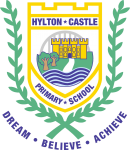Religious Education
Religious Education at Hylton Castle Primary School
At Hylton Castle Primary School, Religious Education (RE) is an important part of our curriculum, helping children to explore and understand a range of religious and non-religious world views. We follow the Discovery RE scheme alongside the Sunderland Agreed RE Syllabus, ensuring a rich and balanced approach to learning about faith, beliefs, and values. We recognise the diversity of religious and non-religious families from which our pupils come. We welcome and celebrate this diversity, are sensitive to the home background of each child and work to ensure that all pupils feel and are included in our RE Programme. We recognise the importance of pupils’ all-round personal development and the leading role that RE plays in contributing to the spiritual, moral, social and cultural elements in particular. We believe in the importance of teaching these in a balanced way to ensure children develop a deep understanding of the key world faiths and cultures. Through RE, pupils are encouraged to ask big, thought-provoking questions about life’s meaning and purpose, while developing respect for others, including those with different beliefs. Our RE lessons promote open-mindedness, empathy, compassion, and generosity, helping children to reflect on their own responsibilities and consider how they can positively contribute to their school, community, and wider society.
Implementation
RE lessons are taught weekly.
- Each lesson will be driven by a learning intention (taken from Discovery scheme in line with Sunderland agree syllabus and SACRE units) and have a clear outcome/ end product by the end of a particular topic
- Acquire and develop knowledge and understanding of the six key world faiths (Christianity, Judaism, Buddhism, Islam, Sikhism and Hinduism) along with any other alternatives as appropriate that are represented within our community, in the United Kingdom and further afield
- Developmental whole school progressional and developmental approach to Christmas and Easter from EYFS to Y6
